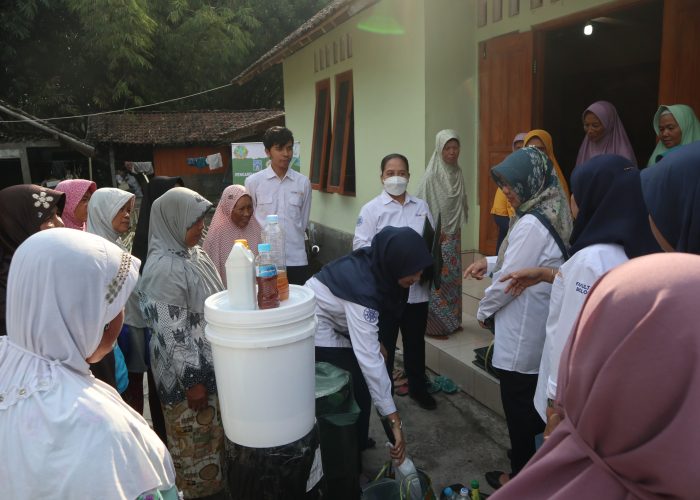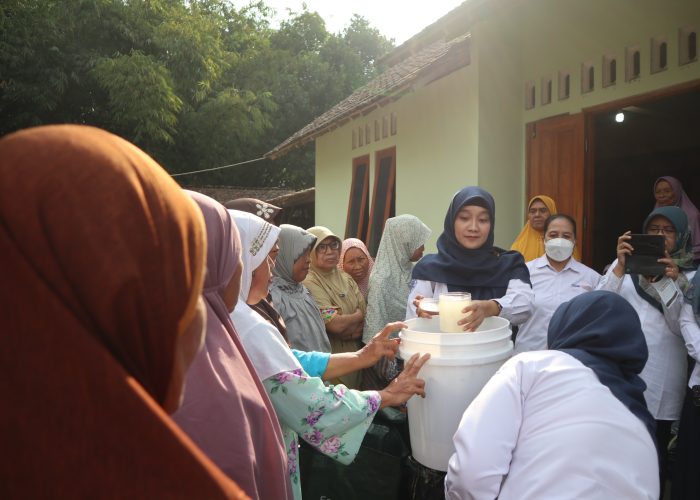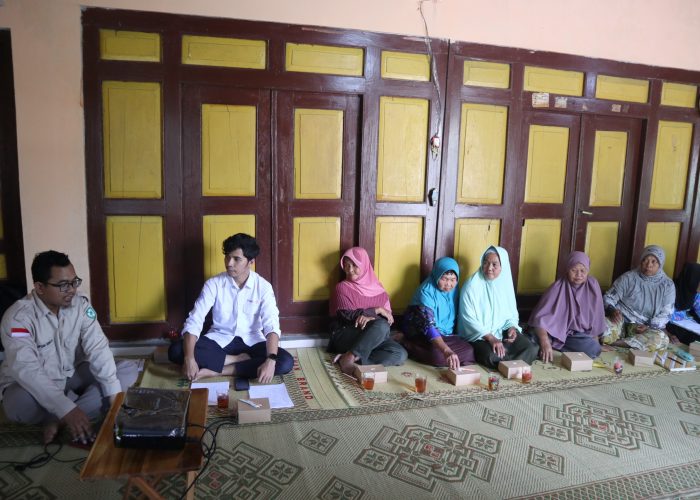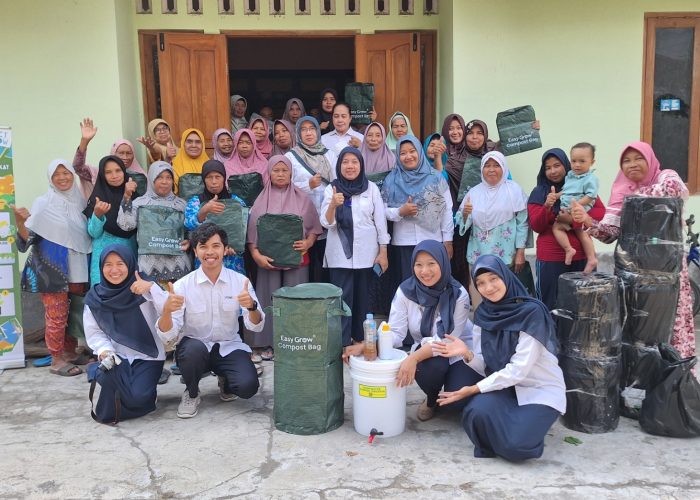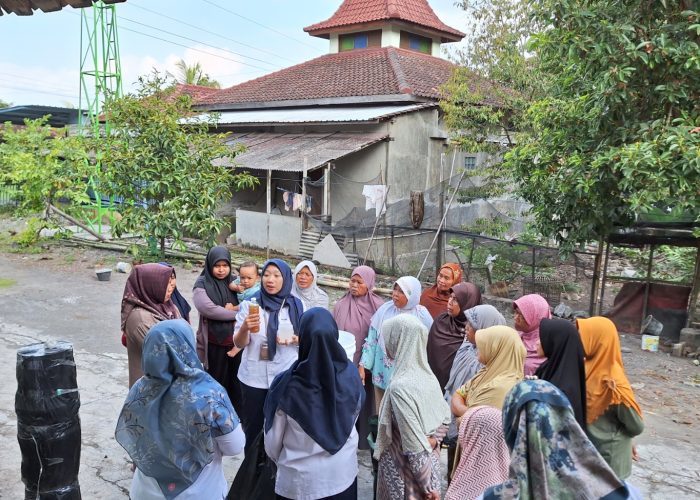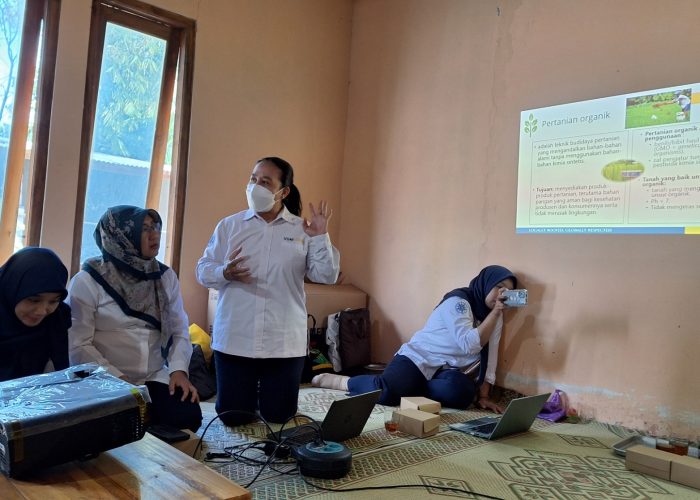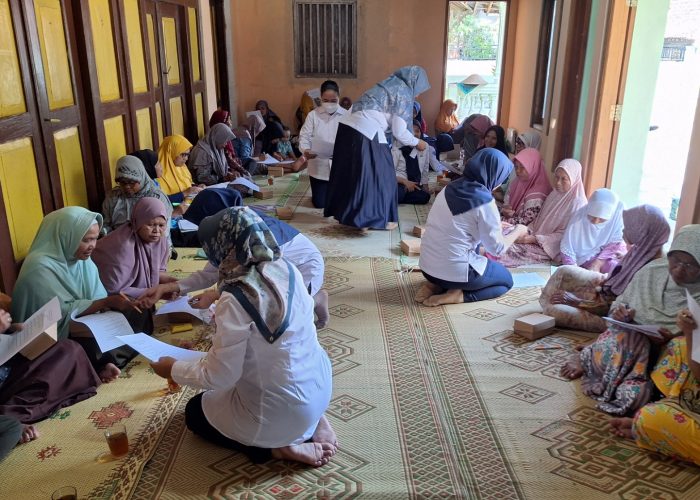To carry out higher educationTri Dharma, The Faculty of Biology UGM initiated the Partner Village program at Wukirsari Village, Cangkringan District, Sleman Regency, Yogyakarta Province. A memorandum of understanding was signed between the Dean of the Faculty of Biology UGM, Prof. Dr. Budi Setiadi Daryono, M.Agr.Sc., and the Head of Wukirsari Village, Mr. Handung Tri Rahmawan, on June 5, 2024, for community service activities with a duration of 5 years. The 2024 activities focus on the Integrated Agriculture Development program incorporating waste management and processing. The proposing team from the Faculty of Biology UGM for the Wukirsari Partner Village program is chaired by Rina Sri Kasiamdari, S.Si., Ph.D., with members including Prof. Dr. Diah Rachmawati, S.Si., M.Si.; Dr. Maryani, M.Sc.; Dr. Eko Agus Suyono, M.App.Sc.; Utaminingsih, S.Si., M.Sc.; Dr. Aprilia Sufi Subiastuti, S.Si.; Dr. Siti Nurbaiti, S.Si.; Novita Yustinadiar, S.Si., M.Si.; and Dr. Wiko Arif Wibowo, S.Si.
The first activity was held on Monday, July 22, 2024, in Sruni Hamlet, targeting the PKK (Family Welfare Empowerment) group. This activity focused on introducing waste, economically valuable waste management, and organic waste processing. Rina Sri Kasiamdari, the team leader, stated that this activity will be conducted continuously, starting with waste introduction and processing, hydroponics and microalgae introduction, and using organic fertilizers from waste processing for home gardening. “The issue of waste management needs special attention from all of us in the Special Region of Yogyakarta, including Sleman, especially since waste management has returned to the local government,” said Rina in her speech.
The presentations began with Ria Karyanto, S.Kom., discussing waste banks and continued with an introduction to organic fertilizers delivered by Dr. Maryani, M.Sc.. Next, Novita Yustinadiar, S.Si., M.Si., conducted training on making solid organic fertilizers, and Dr. Aprilia Sufi Subiastuti, S.Si., led a session on creating liquid organic fertilizers. This session was attended by 37 PKK members from Sruni Hamlet. Based on the questionnaires and testimonials from the PKK group, the community generally did not know about the types of waste, waste management, and waste processing into organic fertilizers. During the first activity of the Partner Village program, compost bags were distributed to each resident for home application, and compost buckets distributed to groups of residents, which were monitored monthly by the team.
This program is related to various aspects of the SDGs (Sustainable Development Goals), particularly SDG number 11 (Sustainable Cities and Communities) and 12 (Responsible Consumption and Production), but also related to SDG number 3 (Good Health and Well-Being), 6 (Clean Water and Sanitation), 13 (Climate Action), and 15 (Life on Land).

